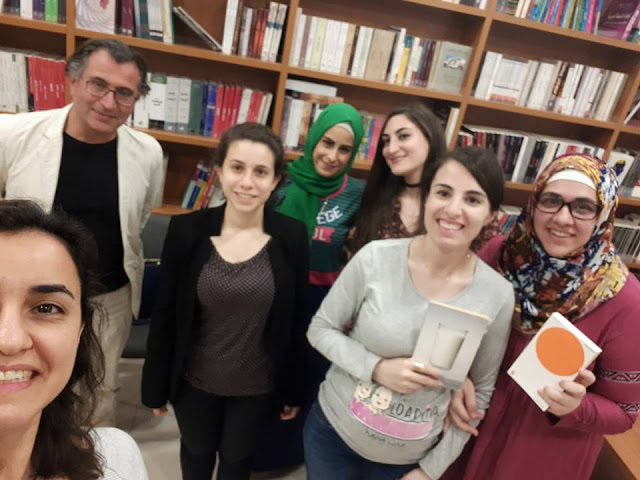The Bookoholics met on Mother's Day, Wednesday March 21st, 2018 to discuss the 4th book in the list of 15 books from the 12 genres 2018 Reading list. The book's genre was Sci-fi/Fantasy, and it was Anthony Burgess' A Clockwork Orange.
“What's it going to be then, eh?”
Anthony Burgess was a poet, music composer, theater and literary critic, and a writer of fiction and nonfiction books. He is best known for his disturbing dystopian novel 'A Clockwork Orange,' which gained a cult following when Stanley Kubrick released his 1971 film version.
“This must be a real horrorshow film if you're so keen on my viddying it.”
The discussion started with talking about what is the genre of sci-fi and fantasy. This speculative fiction genre, or the literature of ideas, is typically found in A Clockwork Orange. Major writers of this genre include Douglas Adams, Ray Bradbury, Isaac Assimov, George Orwell, Aldous Huxley, and Suzane Collins. Then, the discussion shifted to talking about the productive and interesting life of Anthony Burgess who taught himself the piano and wrote his first symphony at the age of 18. The importance of music in his life can be traced in the protagonist's love for music in the discussed novel. Burgess was diagnosed with a brain tumor, which pushed him further to write. All in all, he produced 33 novels, 24 non-fiction works and more than 250 musical pieces.
“If he can only perform good or only perform evil, then he is a clockwork orange—meaning that he has the appearance of an organism lovely with colour and juice but is in fact only a clockwork toy to be wound up by God or the Devil.”
Now, back to 'A Clockwork Orange'. The discussion started off with some key facts about the novel and focused on the following major points:- themes : The inviolability of free will; the necessity of commitment; the inherent evil of government; “duality as the ultimate reality”
- motifs : Nadsat; classical music; Christ
- symbols : Milk; drugs
“Is it better for a man to have chosen evil than to have good imposed upon him?”
A Clockwork Orange imagines how brainwashing through conditional behaviorism could be used as one of many forms of violence by the government in order to oppose unwanted violence of those who do not follow the government's rules. How ethical is it? How revolting is it? Can you face violence with more violence?
“When a man cannot choose, he ceases to be a man.”
The discussion went to speaking about violence in societies, revolutions, consumerism, arts, music, non-violent rehabilitation, violence in prisons, freedom of choice and will, good and evil, religious teachings about non-violence, thirst for power, and social injustice.
“The important thing is moral choice. Evil has to exist along with good, in order that moral choice may operate. Life is sustained by the grinding opposition of moral entities.”
Rihab reviewed the book saying: ' It is an irritating and disturbing book. It made me angry and frustrated several times, it is full of unbearable violence and harsh scenes. Even the main characters are not lovable, in reverse I literally hated all of them....However, in a weird way I have enjoyed this book! Somehow it is smart and innovative! Somehow it is enjoyable!'
The main disliking of the book was because of the slang, and a bit because of the ultra-violence, lack of psychological insight into the disturbed protagonist Alex, and the awkward rushed ending.
“It may not be nice to be good, little 6655321. It may be horrible to be good. And when I say that to you I realize how self-contradictory that sounds. I know I shall have many sleepless nights about this. What does God want? Does God want goodness or the choice of goodness? Is a man who chooses the bad perhaps in some way better than a man who has the good imposed upon him? Deep and hard questions, little 6655321.”
The meeting ended with some selfies including the traditional Hoda-Rihab selfie; Rihab's book has a glass of milk on its cover and mine has an orange circle (I think mine is cooler):














